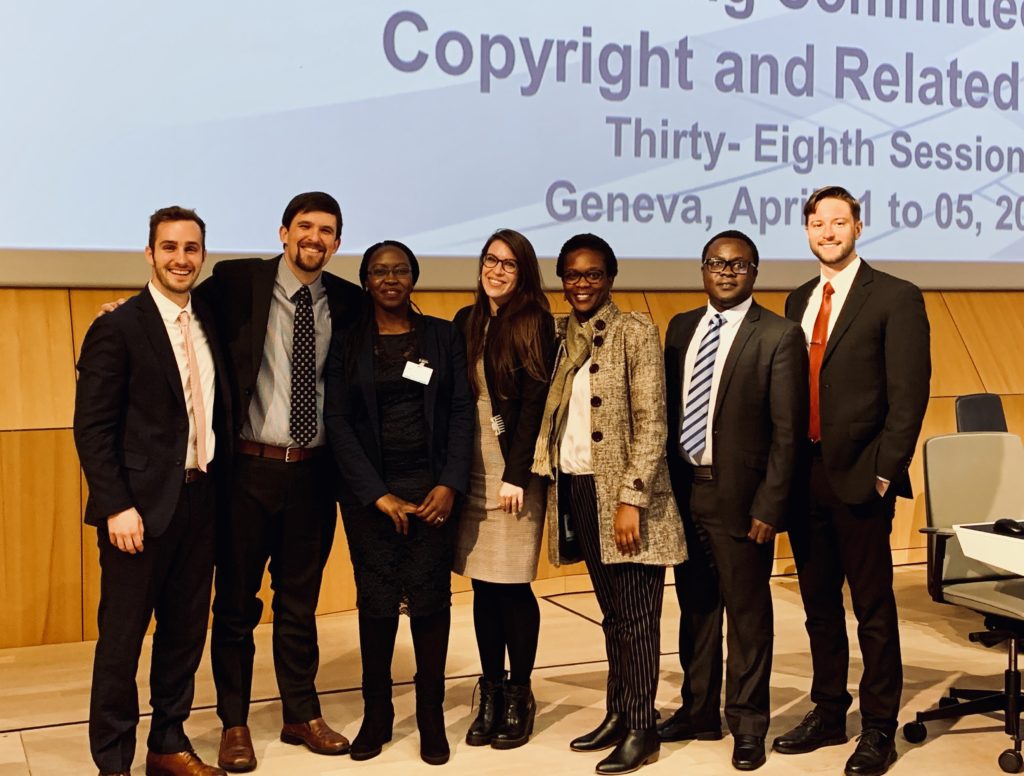WASHINGTON – On July 31, the TLPC, on behalf of its client Telecommunications for the Deaf and Hard of Hearing, Inc. (TDI) and in partnership with the National Association of the Deaf (NAD), the Hearing Loss Association of America (HLAA), the Association of Late-Deafened Adults (ALDA), the Cerebral Palsy and Deaf Organization (CPADO), Deaf Seniors of America (DSA), the Deaf/Hard of Hearing Technology Rehabilitation Engineering Research Center (DHH-RERC), the Twenty-First Century Captioning Disability and Rehabilitation Research Project (Captioning DRRP), the Rehabilitation Engineering Research Center on Universal Interface & Information Technology Access (IT-RERC), and the National Technical Institute for the Deaf, supported by the American Association of the DeafBlind (AADB) petitioned the Federal Communications Commission (FCC) to address long-standing quality problems with captioning for live television programming.
Continue reading “Deaf and Hard of Hearing Consumer Groups and Researchers Call on FCC to Improve the Quality of Live Captions”TLPC Releases White Paper for EFF Reevaluating Sharing Obligations for the Modern U.S. Wireline Broadband Market
(by Elliott Browning, Colorado Law 2L)
The TLPC is happy to release a white paper, prepared on behalf of and in collaboration with the Electronic Frontier Foundation, reevaluating the viability of sharing obligations in light of lackluster competition and deployment in the modern wireline broadband market. With an eye towards remedying this stagnation and encouraging the widespread deployment of fiber-to-the-home, the paper discusses the history and development of competition in last-mile connectivity.
Specifically, the paper evaluates the current market for high-speed wireline broadband in the U.S. with a specific focus on the deficiency in fiber deployment; reviews the development of competition in the local exchange from the invention of the telephone to the passage of the Telecommunications Act of 1996; and reconsiders the FCC’s 2005 decision to not extend sharing obligations to wireline BIAS providers in light of the modern market.
The paper will provide historical support for a broader series of policy papers by EFF aimed at improving competitive conditions in the wireline broadband market with the ultimate goal of connecting more Americans to a reliable, high-speed broadband network.
The FTC’s Right to Repair Inquiry and the Copyright Office’s Section 1201 Proceedings
(by Blake Reid, TLPC Director and Kayla Enriquez and Sarah Rippy, Colorado Law 2Ls)
The Federal Trade Commission is conducting a workshop entitled Nixing the Fix, which is aimed at exploring issues around the right to repair. In our submission to the Commission, we have submitted a curated archive of the record developed during the Copyright Office’s various proceedings that have raised repair-related issues, including its 2012, 2015, and 2018 triennial reviews of exemptions from Section 1201 of the Digital Millennium Copyright Act, its 1201 Policy Study, and its Software-Enabled Consumer Products Study.
TLPC Presents on Disability and Copyright at WIPO SCCR/38
(by Colleen McCroskey, Colorado Law 2L)

TLPC student attorneys Colleen McCroskey, Kevin Doss, and John Schoppert, along with TLPC Director Blake Reid and colleagues from the University of Cape Town, including Prof. Caroline Ncube recently presented to the Standing Committee on Copyright and Related Rights (SCCR) of the World Intellectual Property Organization (WIPO) on the intersection of copyright law and disability.
Continue reading “TLPC Presents on Disability and Copyright at WIPO SCCR/38”Municipal Drone Policy
TLPC student attorneys and Colorado Law 2Ls Kristine Roach, Trey Reed, and Jay Gurney recently finalized a white paper on municipal drone policy. The paper outlines some of the many drone applications for hobbyists, businesses, researchers and governments, while considering disruption and intrusion concerns.
Given these competing concerns and interests, the paper outlines different approaches to municipal drone policies and regulations, including the prospect of federal preemption. The paper also analyzes 4th Amendment limitations on municipal drone surveillance and open records requirements implicated by municipal drone use. While the analysis is most pertinent to Boulder, the drone policy considerations are intended to be applicable to municipalities across the United States.
Our thanks to Prof. Deborah Cantrell, Prof. Ann England, Prof. Margot Kaminski, Tom Carr, Boulder City Attorney, Julia Richman, Boulder Chief Information and Analytics Officer, and Cory Dixon, IRISS Chief Technologist for their help in the development of this paper.
TLPC Releases White Paper on Intellectual Property Issues at the FCC
In this white paper, TLPC student attorneys Colter Donahue and J. Parker Ragland outline steps that the FCC can take to avoid having rulemakings and other policymaking initiatives delayed or negatively affected by intellectual property issues. In recent years, the Commission has faced several situations, including in the context of 9-1-1 services, telecommunications relay services, and set-top boxes, where intellectual property issues have arisen and affected proceedings. The white paper urges the Commission to develop adequate expertise in intellectual property law and to proactively anticipate and address IP issues to avoid these situations in the future.
TLPC Completes 911 Accessibility Report for Colorado Public Utilities Commission
This semester, TLPC student attorneys Victoria Naifeh, Allison Daley, and Elizabeth Chance and student technologist Jeff Ward-Bailey worked with the Colorado Public Utilities Commission’s 911 task force to research the legal landscape surrounding 911 accessibility for the deaf, deaf-blind, hard of hearing, and speech disabled communities in Colorado. The final project, a white paper summarizing the research, is now available here and on the the Social Sciences Research Network:
